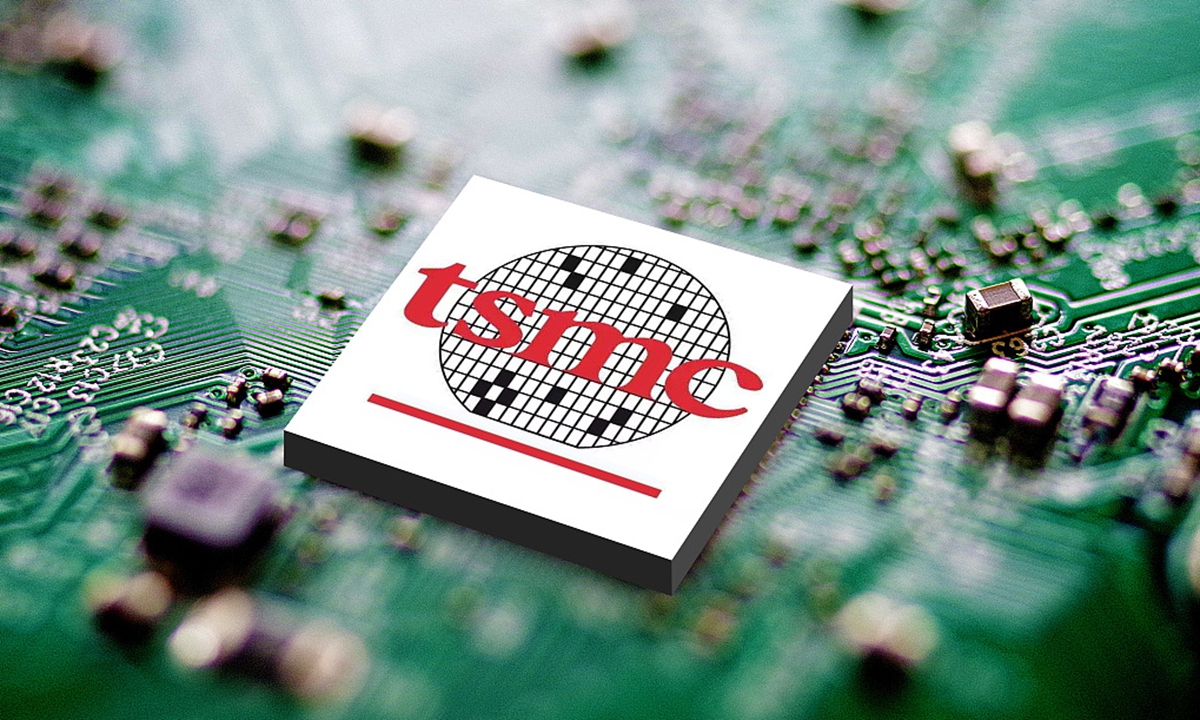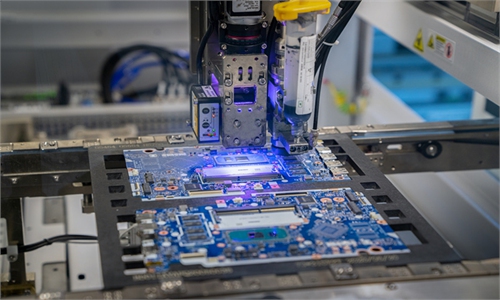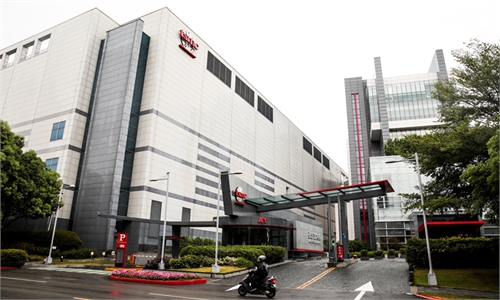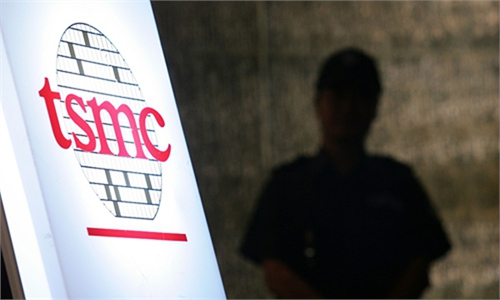
TSMC Photo: VCG
The CEO of Taiwan Semiconductor Manufacturing Company (TSMC) reiterated at a technology symposium on Tuesday that its ultra-advanced 3-nanometer chip production technology will be put into mass production "soon," Nikkei Asia reported. The comment came about one month after Samsung Electronics said it has succeeded in mass producing 3-nanometer chips, making the South Korean giant the first chipmaker in the world to reach the milestone.As transistors get smaller and smaller, traditional miniaturization techniques are reaching their physical limits. Some industry insiders believe 2-nanometer may be the ultimate battle in the field of silicon semiconductor chips, before the world enters a graphene age of industrial revolution. The question now is: any chipmaker has to win a competition for the 3-nanometer chip if it wants to beat rivals in the ultimate 2-nanometer technology race. TSMC and Samsung Electronics are considered the main contenders of global competition in the 3-nanometer technology.
The two chipmakers are in competition with each other for years. In 2008, global sales of semiconductors were severely impacted by the world-wide economic turmoil. TSMC dismissed several hundred employees in 2009 after the global downturn caused a sudden drop in business. Some media reports said Samsung Electronics offered double salaries to "poach" some technical staff from TSMC, as a result, Samsung Electronics gained a competitive edge over others in research and economic performance.
The fortune of the semiconductor industry has been increasingly linked to macroeconomic conditions such as economic stability, cash liquidity and consumer confidence. TSMC is now at a critical moment on the road to overcome technical difficulties for its 3-nanometer and 2-nanometer chips. At this moment, TSMC requires a stable external environment to allow the chipmaker to concentrate more on winning the race.
The Chinese mainland is the world's largest semiconductor market. Some statistics showed the Chinese mainland consumes more than 50 percent of global semiconductor products, which are then assembled into a broad range of electronic products to be exported or sold in the mainland market. Global chipmakers must admit that the Chinese mainland is too big a market for any of them to ignore.
In the current fierce international competition, any player choosing to abandon the mainland market will likely have a pressure over its capital supply chain and will eventually be defeated by its rivals.
As tensions escalated across the Taiwan Straits as a result of the Democratic Progressive Party (DPP)' secessionist words and deeds, many have begun to care whether TSMC will be affected. The DPP authorities may think the island's semiconductor manufacturing sector is a trump card that can be used to advance its secessionism, but they have largely overestimated the capabilities.
Some US politicians and "Taiwan independence" separatist forces are trying to play a dangerous game to involve TSMC into tensions rising across the Taiwan Straits. TSMC must see through their tricks.
Without a peaceful and stable environment, the chipmaker's global position will surely be weakened or even lost, not to mention its ambition in 3-nanometer chips. If tensions escalate in the Taiwan Straits, TSMC may have to run against a stronger headwind than it did during the 2008-09 financial crisis.



